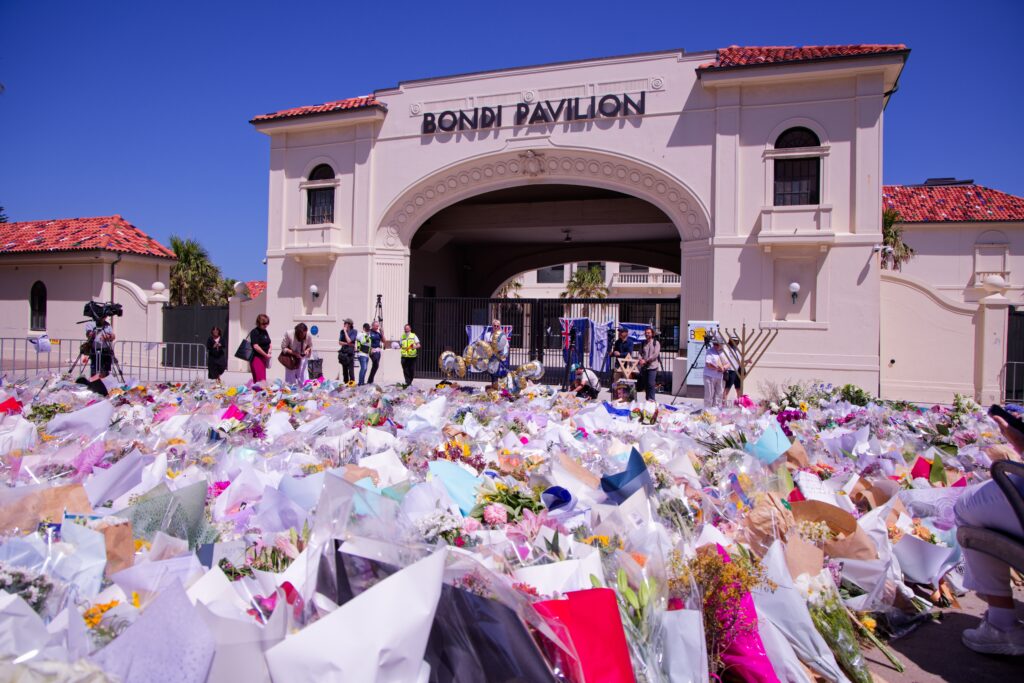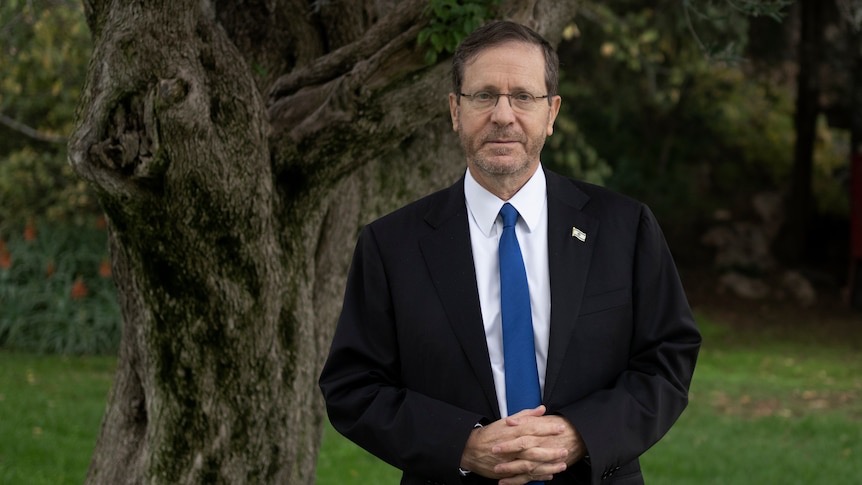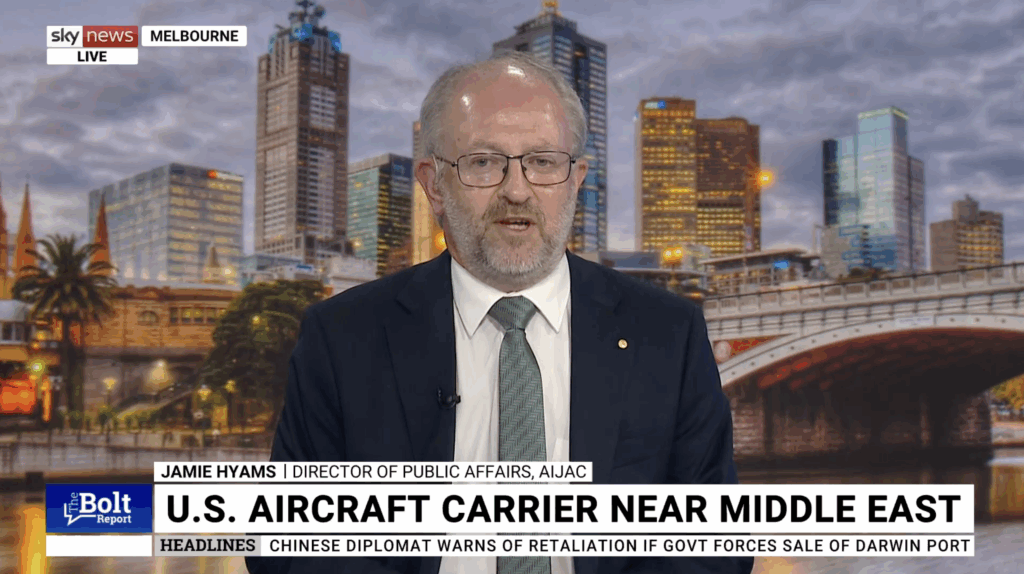UPDATES
Iran ups the stakes at UN
May 7, 2010 | AIJAC staff
Update from AIJAC
May 7, 2010
Number 05/10 #02
Today’s Update looks at the shameless spectacle of Iranian President Mahmoud Ahmadinejad’s address to the Nuclear Non-Proliferation Treaty Review Conference at the United Nations this week, which saw the delegations from the US, Britain, France, Australia, New Zealand and others walk out.
First up, Barry Rubin dissects Ahmadinejad’s doublespeak. In the face of all the compelling evidence pointing to Iran’s pursuit of nuclear weapons, Ahmadinejad’s bold statement that “The possession of nuclear bombs is not a source of pride; it is rather disgusting and shameful” is a case of calling Obama’s bluff on the drive to eliminate nuclear weapons, according to Rubin.
Ahmadinejad’s real audience was countries like Lebanon, Turkey, and Brazil who are currently occupying seats on the UN Security Council and “whose votes will be vital for passing (or, more likely, not passing) sanctions”. Indeed, Iran invited all 15 Security Council members for dinner on Thursday night at its UN ambassador’s residence. To fully understand the meaning behind the words of one of the world’s most dangerous leaders, CLICK HERE.
Next up, Cliff May, president of the Foundation for Defense of Democracies, reiterates the centrality of effective economic sanctions in neutralising Iran’s nuclear weapons program by targeting Iran’s achille’s heel, its largely petroleum-based economy. Astonishingly, Iran, whilst being a net exporter of unrefined petroleum, needs to import 40% of the refined petroleum it uses. May critiques the current bills in the US Congress that have received bipartisan support to cut off most of the gasoline Iran imports. Anyone seriously interested in pursuing a non-violent means of stopping the Iranian nuclear weapons juggernaut, CLICK HERE.
Finally, noted Iran analyst Abbas Milani assesses the current status of the Iranian opposition Green Movement which took to the streets of Teheran last June to protest the disputed election results. The world watched in hope and wonder at the possibility the Islamist regime might be undermined through people power by leaders who had openly condemned the regime’s obsession with nuclear weapons. Despite the subsequent vicious crackdown by the regime, Milani records that there are many instances of small but significant public displays of opposition, including the refusal by most of the major ayatollahs in Qom to meet with Iranian President Mahmoud Ahmadinejad last month. Milani concludes that the fact “the Green Movement’s leaders are not backing down is an indication that they at least think their public is still behind them”. To read this important account of a potential avenue for bringing down the Iranian regime, CLICK HERE.
Readers may also be interested in:
- The International Atomic Energy Agency circulates a letter to Nuclear Non-Proliferation Treaty members canvassing their opinions on a resolution passed last year by the organisation demanding Israel sign the NPT.
- Former US Ambassador to the UN John Bolton argues that the Obama Adminsitration has already accepted as inevitable Iran’s acquisition of nuclear weapons and is just going through the motions in appearing to stop their development.
- Transcript of a Fox News interview in which John Bolton explains why he thinks so few countries walked out on Ahmadinejad’s speech and what it says about the UN (He didn’t notice Australia and New Zealand among those that walked out), and what Ahmadinejad hoped to achieve by going to the UN. As Henry Benjamin from J-Wire noted, Australia and New Zealand also walked out.
- Anne Appelbaum on how Iran was persuaded not to attempt to join the UN Human Rights Council, only to become a member of the UN Commission on the Status of Women – dedicated to “gender equality and the advancement of women”.
- Anne Bayefsky on how President Obama enables Iran’s defiance.
- Iraqis, even Shi’ites, take a dim view of Iran, according to a Policy Watch from the Washington Institute for Near East Policy (Written before the two Iraqi Shi’ite blocs announced they would form a coalition).
- Iranian President Mahmoud Ahmadinejad suggests Osama bin Laden is living in Washington DC.
- Tom Gross provides a primer on the British elections and takes a closer look at Liberal-Democrat leader Nick Clegg. More on the elections and Clegg from Jerusalem Post editor David Horovitz.
- A good summary of what is happening with the proximity talks between Israel and the Palestinian Authority which are waiting for the PLO central committee to grant its blessing on Saturday.
- Sadanand Dhume theorises on why Pakistan keeps producing terrorists.
- Hezbollah has Syrian M-600 rockets in its arsenal which are deadlier and more accurate than Scuds. David Schenker comments on the Syrian transfer of Scuds.
- Jonathan Chait exposes basic flaws in John Mearscheimer’s latest screed against Jews. American Jewish Committee Executive Director David Harris on Mearscheimer and other takes on Mearscheimer here and here.
- Khaled Abu Toameh writes that to facilitate Middle East peace talks, the US should pressure Syria and Iran, not Israel or the Palestinians.
- Finally, AIJAC Executive-Director Dr. Colin Rubenstein writing in the Jakarta Post on how the Obama Administration’s clumsiness has only caused the Palestinian Authority to be more intransigent on peace talks.
Ahmadinejad Unveils His Grand Strategy: A Nuclear Defensive Umbrella for Aggression
By Barry Rubin
Rubinreports, May 6.
Whatever you think of Iranian President Mahmoud Ahmadinejad he is not a stupid man. And he’s also not acting like an intimidated one. During the latest UN meeting on nuclear issues, when the new International Atomic Energy Agency (IAEA)director-general urged Iran to “clarify” its activities, the camera showed Ahmadinejad laughing contemptuously.
Diplomatic engagement isn’t going to win this guy over, nor are hollow threats. He knows the current U.S. government court-martials Navy Seals for giving a bloody lip to a terrorist who murdered American civilians in Iraq and mutilated their corpses (though the two tried have been cleared). What does he have to be scared about?
The main theme of Ahmadinejad’s speech at the 2010 Review Conference by countries that have signed the Non-Proliferation Treaty (NPT) is to outflank Obama’s calls for getting rid of nuclear weapons, trying to repeat Iran’s success of last September in getting sanctions postponed. Back then, Iran proposed a plan for letting its nuclear materials be reprocessed abroad. But once the sanctions’ momentum had been derailed, Iran made clear that it had no intention of agreeing to anything like that.
Incidentally, it was Obama who strongly supported adding the issue of getting rid of all nuclear weapons in the world to the UN conference agenda.
After running his own international nuclear summit under the slogan, “Nuclear Power for All, Nuclear Weapons for None,” Ahmadinejad gave a UN speech sounding word for word what an idealistic pacifist would say: nuclear weapons are bad; ban them now.
Nuclear weapons, Ahmadinejad explained, don’t bring real security and producing or possessing them, “under whatever pretext..is a very dangerous act which first and foremost makes the country” having them worse off. He even stated:
“The possession of nuclear bombs is not a source of pride; it is rather disgusting and shameful. And even more shameful is the threat to use or to use such weapons.” The entire system of non-proliferation, said Ahmadinejad, is just an oppressive sham letting those who possess these weapons try to keep others from getting them in order to maintain their own supremacy. Those in control of the international system also, he continued, want to use nuclear arms as an excuse to get others from obtaining nuclear energy, “the cleanest and cheapest” source of power.
Ahmadinejad’s alternative is, “Immediate termination of all types of research, development, or improvement of nuclear weapons and their related facilities” and dismantling all U.S. nuclear weapons everywhere.
Oh, yes, and he calls for reforming the UN Security Council to get rid of a veto or permanent membership for the United States and others. And–no stranger to chutzpah–Ahmadinejad called for kicking the United States off the board of governors of the International Atomic Energy Agency.
At the end, Ahmadinejad invited Obama “to join this humane movement, if he is still committed to his motto of `change.’”
What is all this about? Why is the leader most determined to pay a high price for getting nuclear weapons bad-mouthing them. Is this just camouflage to buy more time for Iran to get nukes? Yes but that’s not all.
First, Ahmadinejad is calling Obama’s bluff. You want to eliminate nuclear weapons? Make my day, let’s do it! Obviously, this isn’t going to work at this stage on Obama. But Ahmadinejad is not trying to persuade the United States but rather a range of Third World countries that might well oppose sanctions, including Lebanon, Turkey, and Brazil, which all happen to be on the Security Council right now and whose votes will be vital for passing (or, more likely, not passing) sanctions.
What’s most important of all, however, is the second motive, an Iranian strategy I call creating a defensive umbrella for aggression. This might become the centerpiece of Middle East politics in the future. Let me explain.
Most discussion in the West has focused on Iran using nuclear weapons or threatening to do so. Yet, instead, Iran could genuinely be developing these arms in order to defend itself. The problem is that this defense is coupled with an aggressive policy.
In this framework, Iran would continue and escalate its subversive efforts against neighbors; consolidate and increase its influence in Lebanon and Iraq; support Hamas and client forces in Afghanistan; press regional states toward appeasement; recruit millions into revolutionary Islamist groups; and try to make Iran the hegemonic power in the region.
But when anyone tries to oppose Iran, Tehran need merely give a gentle reminder that it has nuclear arms and so they better shut up. To be fully intimidated by this tactic, Arabs don’t have to believe that Iran would win a nuclear exchange with the United States. After all, even if Tehran lost they know their own countries would be devastated. Better to avoid any chance of a nuclear war than to offend Iran. Syria and Turkey, under its neo-Islamist regime; Hamas and Hizballah; Yemeni rebels and Iraqi insurgents would smirk and stick out their tongues from under Iran’s protective umbrella.
The other element—as so often in the Middle East—is who the local rulers most fear. How can the Obama Administration, which has criticized past U.S. use of force and decisive leadership, persuade Iran to tremble in fear and convince moderate Arabs to stand tall feeling securely protected? Of course, these Arabs will accept American security guarantees but they would then be far more likely to bow to Iranian demands than to U.S. requests.
And there’s still another trick up Ahmadinejad’s sleeve. Under the current administration concept of containing Iran, the United States would have to do precisely what Ahmadinejad proposes to outlaw: threaten Iran with nuclear retaliation. So how will a U.S. threat that keeps nuclear Iran from flexing its muscles be worded, how scary will it be for Tehran, and how encouraging will it be for that regime’s intended victims?
Ahmadinejad’s apparently pacifist-style, peacenik stance at the UN conference fits into his strategy. Nuclear weapons may well provide the umbrella for him to seek regional hegemony with weapons of mass destruction unused but highly visible in his back pocket.
For a detailed analysis of what’s going on regarding current non-proliferation issues, read Josh Pollack, a serious expert on these issues who actually makes them comprehensible, go HERE.
————————————————————————
Give Crippling Sanctions A Chance
By Cliff May
Scripps Howard News Service, May 6.
There is no greater threat to national and international security than the possibility that Iran’s current rulers – militant Islamists, terrorist masters and sworn enemies of both the Great Satan and the Little Satan – may acquire nuclear weapons. Recently, a memo by Secretary of Defense Robert Gates (leaked to The New York Times) advised the President that the development of a strategy to confront this threat is long overdue.
Obama hoped confrontation could be avoided. He came into office eager to engage the Islamic Republic, to strike a “grand bargain” that would give Iran’s theocrats respect and just about anything else they wanted in exchange for their agreement not to develop and wield nukes. More than a year later, this approach has yielded nothing. Iran’s rulers don’t even want to negotiate.
So a strong bipartisan majority in Congress is pointing Obama in a different direction: Both the House and the Senate have passed bills that would cut off most of the gasoline Iran now imports – and needs — to keep its sputtering economy from grinding to a halt. A bicameral conference committee is working on a final product – the Iran Refined Petroleum Sanctions Act (IRPSA) – soon to be sent to the President to sign into law.
For that bill to be as tough as it can and should be, however, one additional arrow needs to be put in the quiver: an amendment that would prohibit corporations not only from selling shiploads of gasoline to Iran but also from selling any goods, services, technology and information that would assist the regime’s development and maintenance of its oil and natural gas infrastructures.
Tehran’s need to import, by some estimates, as much as 40 percent of its gasoline from foreign companies is its “Achilles’ heel.” Why does one of the world’s leading exporters of oil need foreign gasoline at all? In large part, because it has focused on building nuclear facilities rather than oil refineries.
IRPSA will extend and expand the 1996 Iran and Libya Sanctions Act (now known as the Iran Sanctions Act, or ISA) to give the President the means to sanction foreign companies involved in almost any aspect of Iran’s refined petroleum trade — including suppliers, insurers, banks, shippers, investors, even those who supply technology and information.
But, again, both ISA and IRPSA, as currently written, contain a huge loophole. While the House and Senate bills target the entire supply chain for gasoline, and ISA prohibits direct investment in Iranian natural gas and oil projects, neither addresses the supply of critical goods, technology, services and specialized energy information for the oil and natural gas sectors. Without that, sanctions will not be truly “crippling.”
Also of concern: As pressure on its gasoline trade has increased, the Islamic Republic has responded with countermeasures intended to provide “energy independence.” This effort reportedly includes a range of projects – from the conversion of existing vehicles to run on natural gas to a sweeping mandate for new Iranian cars to be “flexible fueled,” that is, able to run on a variety of gasoline/alcohol fuel mixtures.
The good news is that Iran has not yet progressed very far along this path, thanks to government mismanagement and lack of foreign assistance. With the amendment recommended above, IRPSA would put a large obstacle in the way of Iran obtaining that assistance.
More than a few members of Congress now seem to be serious about sanctions. At last week’s conference committee meeting, House Foreign Affairs Committee chairman Howard Berman (D-CA) called on lawmakers to strengthen IRPSA, “to plug that gap in our anticipated sanctions regime.” His colleague, Rep. Brad Sherman (D-CA) emphasized that sales of goods, services and technology to Iran “are just as damaging to our interests as capital investment.”
Could crippling sanctions and their impact on an already ailing Iranian economy change the behavior of the Iranian regime – or cause a change of regime? There’s only one way to find out. Along with support for Iran’s dissident Green Movement, this is the last, best chance to peacefully stop Iran’s jihadis from achieving the lethal capabilities they need to match the hostile intentions they have long harbored.
————————————————————————
Standing Eight: Has Ahmadinejad really crushed the Green Movement for good?
By Abbas Milani
The New Republic, April 30.
The last few months have seen a disquieting lull in news of political dissent from Iran. On the surface, at least, Ahmadinejad’s government seems to have outlasted the furor that erupted in the wake of last June’s election. Does this mean that the Green Movement is dead?
Not necessarily. Given the sheer number of people who have been arrested and tortured (political inmates at Iran’s most notorious prison just sent an incredible letter to several grand ayatollahs, detailing sexual, physical, and mental torture), it would be understandable if the Green Movement’s leaders had fallen completely silent. But they have continued to speak out. Mir Hossein Mousavi, for one, has evinced no signs of buckling under to the regime. Ten days ago, he met with other Green Movement leaders and said that while the “path to victory” would be “long and arduous,” he encouraged everyone to persevere. Then, this past Sunday, while meeting with veterans of the Iran-Iraq war, he said that the country’s current rulers were in breach of both the constitution and the tenets of Islam. And he blasted those in the regime who dismiss all critics as lackeys of Zionism.
Meanwhile, Mousavi’s wife, Zahra Rahnavard, has recently become increasingly unabashed in her criticisms of the regime. Last Thursday, during a meeting with families of political prisoners, she spoke defiantly of a “police state” in Iran and of “freedom fighters,” denouncing the regime that has “arrested them, tortured them, used harsh interrogation techniques against them, sewn their lips, and hung them to die.” She ended the meeting by demanding “freedom for all political prisoners” and freedom “from the big prison that is Iran.” On Monday, she mocked the government’s international conduct by asking, “What honor is there in making Burkina Faso, Zimbabwe, or China the crown glory” of the country’s foreign policy?
For his part, reform leader Mehdi Karroubi declared a couple weeks ago in an interview with Der Spiegel that “despotism” and fear have not worked and that “the status quo is untenable,” adding that he and the Green Movement have asked the government for permission to hold a demonstration on the anniversary of last June’s election—and that, beneath the apparent calm, there is a society on the verge of eruption. And, just this Tuesday, Karroubi and Mousavi met and together called on the government to allow them to hold the June rally.
Beyond the leadership of the Green Movement, there are additional signs of fissures within Iran’s governing elite. On Ahmadinejad’s trip to the city of Qom earlier this month, according to one report, virtually every major ayatollah refused to meet with him—despite direct pressure from Supreme Leader Ali Khamenei himself. The Qom ayatollahs provide the theological legitimacy for the regime and their support is essential for any president’s success. While none publicly explained their reasons for refusing to meet Ahmadinejad, the symbolism was hard to miss.
In addition, former president Ali Akbar Hashemi Rafsanjani, a pragmatist who has long positioned himself between the reformers and the hardliners, still seems to be betting that the Green Movement has a future. Despite the fact that the regime has issued an arrest warrant for one of his sons (now in Europe) and that court proceedings have begun against one of his daughters (an unabashed supporter of the Green Movement, also in Europe at the moment), he still has yet to accept Khamenei’s invitation—issued repeatedly in the weeks after the June election—to join the fold. (Khamenei’s cronies subsequently echoed this entreaty, sometimes naming Rafsanjani directly, sometimes merely alluding to him.) In characteristic fashion, Rafsanjani has continued to send ambiguous messages. On the one hand, he recently made appearances both with Khamenei and Ahmadinejad. At the same time, in one of the last sessions of the Expediency Council—a key government committee that Rafsanjani has led for years—he and Mohsen Rezai, who was commander of the Islamic Revolutionary Guard Corps for 18 years, co-sponsored a resolution calling for an end to the role of the Guardian Council in vetting candidates. This is one of the main demands of the Green Movement. The resolution would have to clear many hurdles before becoming law, but the mere fact of its passage was a direct challenge to the authority of Khamenei.
Of course, the one thing that matters most—the question of whether there remains a mass public appetite for protest and resistance—is also the most difficult thing to know. There is no doubt in my mind that Iranians remain hungry for democracy; the question is whether there are enough people who will be willing to once again take to the barricades in the near future. Still, the fact that the Green Movement’s leaders are not backing down is an indication that they at least think their public is still behind them. That seems reason enough to conclude that popular support for the Green Movement persists.
This, of course, is not something the regime and its apologists are eager to hear. To them, the Green Movement was a series of intermittent explosions. Recently, a Friday Prayer leader in Tehran called last year’s post-election events a “political earthquake.” (He also said that women refusing to fully cover themselves would cause a literal earthquake.) But it is more accurate to see the Iranian democratic movement as rooted in a long-term structural malaise—in deep tensions and fissures in the body politic; in the rapidly failing economic fabric of society; in the fact that 20 to 30 million Iranians have Internet access; and in an overall dissatisfaction among Iranians, particularly women and the young, with their lack of personal and political freedom. This reading of the Green Movement explains why it has not yet disappeared. And why it probably won’t anytime soon.
Tags: International Security





